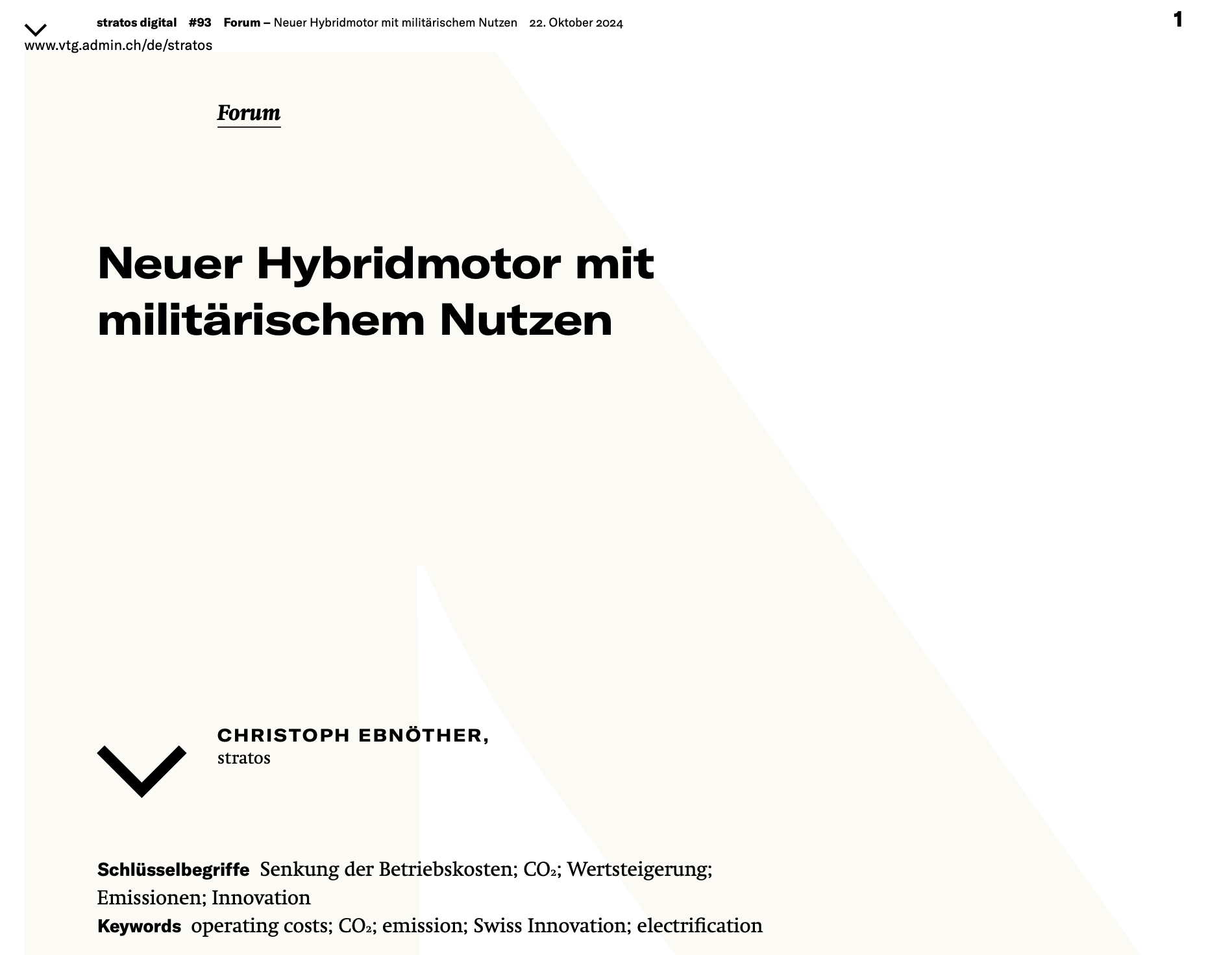
A New Hybrid Powertrain with Strategic Military Advantages

The Swiss Department of Defence (VBS) is pursuing ambitious climate targets: a 40% CO₂ reduction by 2030 and net zero by 2050. Since 98% of the department’s emissions stem from military vehicles, innovative propulsion systems are a top priority.
In this context, Armasuisse, the Federal Office for Defence Procurement, evaluated 4QT’s novel hybrid drivetrain, developed at the Zurich Innovation Park. Field tests confirmed fuel savings of up to 31% and CO₂ reductions of around 39%, marking a breakthrough for heavy-duty vehicles where full electrification is impractical.
Military Benefits Beyond Sustainability
The drivetrain’s advantages go far beyond lower emissions:
- Reduced noise and thermal signature improve operational stealth.
- Extended operational range on the same fuel load enhances mobility.
- Lower logistics demand thanks to fewer refueling runs reduces costs and vulnerability in supply chains.
“This technological innovation provides both military and logistical advantages in crisis situations while aligning perfectly with the VBS climate action plan,”
Dr. Thomas Rothacher, armasuisse
A Smart Hybrid Electric Concept
The patented drivetrain directly integrates motor and generator in a compact hybrid electric system controlled by intelligent software. Energy is delivered when needed and recuperated during operation, maximizing efficiency much like an automatic transmission.
4QT’s technology is now positioned for demonstration in existing military vehicle platforms: for example, as part of programs such as Leopard main battle tank upgrades or protected ground mobility initiatives.
Founded in 2020 by ETH Zurich and MIT engineer Marc Vetter together with Jan Vetter and Christoph Lang, 4QT combines deep technical expertise with industry experience. Despite the challenges of COVID-19, chip shortages, and material constraints, the team has remained focused on developing practical solutions to real problems – not solutions in search of a problem.
4QT’s hybrid electric drivetrain has already attracted interest from NATO funds and UK defense innovation programs, reflecting a broader shift toward high-efficiency, low-emission power systems in the defense sector.
Further Reading
Get In Touch


